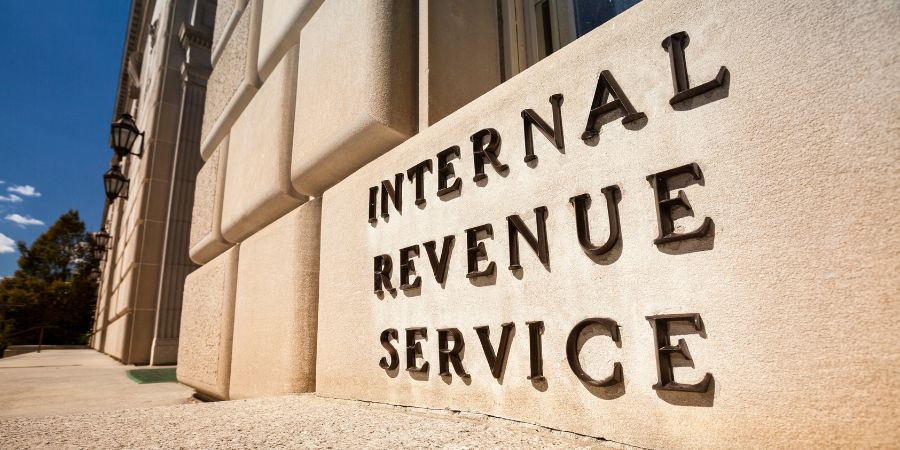In any endeavor, it’s always better if you can increase your odds of success by gathering more information to help tilt the odds in your favor. Remember when the Houston Astros employed technology to steal the opposing teams’ signs during the 2017 and 2018 seasons? After this baseball scandal was revealed, the Astros fired its manager and Major League Baseball fined the team $5 million. In Federal tax audits, there are some useful keys that can increase your odds of success without getting fined like the Astros.
For 27 years, I served as counsel for the Internal Revenue Service assisting revenue agents in audits of individuals and businesses. If audits resulted in adjustments to filed tax returns, I represented the IRS in court to defend the government. During these years, I gleaned both good and bad conduct of taxpayers and/or their representatives that positively or negatively impacted audits. What follows is a list of my top 5 Do’s and Don’ts if you are the subject of an IRS audit.

Top 5 Do’s When You are Selected for an IRS Audit
1. DO → Attend/participate in the opening conference with the IRS revenue agent. At the beginning of an audit, the IRS will schedule an opening meeting. Take the time to attend the meeting. Personalize the audit by allowing the IRS revenue agent to see you, hear that you are cooperative and genuinely want to work with the government. Humanize the process for the IRS.
2. DO → Diligently oversee the work of your tax representative to ensure that he/she is working cooperatively with the IRS. Too often, I have witnessed taxpayers fail to engage in sufficient oversight of their representative during the audit and litigation phase. The absence of taxpayer involvement can lead to needless battles with the IRS at the expense of the taxpayer. How? The representative may take a hardened and unreasonable stance against IRS requests for information leading to pitched battles. Reasonable oversight by the taxpayer over the representative will ensure that the audit proceeds expeditiously rather than devolve into a messy and expensive brawl.
3. DO → Cooperate with reasonable requests from the IRS. At the beginning of the audit, the IRS begins with very limited information to verify the numbers reported on the taxpayer’s tax return. Cooperate with the IRS by providing all the relevant information requested by the IRS. There is a significant benefit that results from cooperating with the IRS during audit. If the matter proceeds unagreed beyond the audit, then the normal burden of proof that is placed on taxpayers shifts to the government as long as the taxpayer cooperates with reasonable requests by the IRS and provides adequate substantiation. In addition, if the matter remains unresolved at the examination phase, then make sure to proceed to the next administrative stage with the IRS Office of Appeals. Congress provided taxpayers with an opportunity to secure reimbursement of fees spent for their hired representatives in the dispute with the IRS if the taxpayer substantially prevails and exhausts all administrative remedies. Taxpayers can’t qualify for reimbursement of their representative’s fees unless they attempt settlement with the IRS Office of Appeals.
4. DO → Consider submitting a “qualified offer” to resolve your dispute with the IRS. Congress added a provision in the tax code to incentivize the IRS to settle tax cases. If the taxpayer offers to settle a tax dispute for a specific dollar amount and the IRS refuses the taxpayer’s offer, then the taxpayer will be in a favored position to recover fees paid by the taxpayer for their tax representative should the tax liability end up being less than the amount offered for settlement by the taxpayer. Force the IRS to seriously consider settling the tax dispute. Congress provided this tool to taxpayers. Use it.
5. DO → Hire a kind, knowledgeable tax professional to represent you in the audit. Individuals may want to save money by going at it alone in a tax audit. Leave your hubris at the door. Put in the subject matter expert to take on the audit. Alternatively, a business may decide to enlist their outside accounting firm to represent them before the IRS since the accountants prepared the return being audited and the billable rate is more economical when compared to a tax attorney. Engaging a knowledgeable accountant to represent you in an IRS audit can be a smart and cost-effective decision if he/she has a professional, demeanor and the issues addressed during the audit are not too controversial such as tax shelter transactions. Not surprisingly, IRS revenue agents respond best when they work with kind and professional tax practitioners. In some instances, you and your long-time accountant may find that it makes sense to engage a tax attorney either as the lead representative in an audit or to serve as a subject-matter expert to provide technical or procedural guidance on strategic options during the tax controversy process. If you decide to hire a tax attorney to assist you in an audit in either role, exercise due care in selecting one. Many tax attorneys have great reputations with the IRS. However, there are many tax attorneys who advertise themselves as “tax controversy” specialists but lack practical experience working with the IRS and have never litigated a tax case in court. When vetting tax attorneys to hire, ask him/her to forward a couple of their reported trial opinions. And, always ask the prospective tax attorney for the name and contact information for at least 3 other attorneys who can vouch for their competency and professionalism. Deciding who will serve as your advocate before the IRS (whether an accountant or a tax attorney) is too important to rely on your gut feeling or Yelp reviews.

Top 5 Don’ts When You are Selected for an IRS Audit
1. DON’T → Engage in a combative relationship with the IRS during an audit. Although the IRS is a large organization, IRS revenue agents are authorized to exercise their discretion in cases assigned to them. In some instances, revenue agents are required to audit specific compliance issues. But, in most cases, agents determine the significance of an issue and independently decide whether an issue on a tax return warrants inquiry. Because agents exercise their discretion in how to conduct an audit, it’s important to maintain a cordial, professional relationship with these employees.
2. DON’T → Sign an agreement to extend the assessment statute of limitations without considering the pros/cons of this step. Normally, the IRS has three years from the date a return is filed to assess additional tax beyond the amount that is reported on a federal tax return. By signing a statute extension, a taxpayer can provide the government additional time beyond this normal 3-year period. During the audit, an IRS agent may request that a taxpayer sign a statute extension offering the taxpayer the promise that the additional time may avoid an undesirable adjustment to a position shown on the filed return. Signing a statute extension is not required of the taxpayer. Whether a taxpayer should sign a statute extension is a significant step and warrants full consideration of the pros/cons. Don’t sign the statute extension until you’ve had an opportunity to fully vet the rationale that supports this decision.
3. DON’T → Mislead the IRS during an audit. Purposely omitting information requested by the IRS during an audit is misleading the IRS. Submitting misstatements to the IRS risks civil and criminal liability. Don’t do it. And, if your representative seems to be cavalier or too “creative” with his/her responses, then find another tax professional.
4. DON’T → Be overly cooperative during the audit. A taxpayer is not required to: (1) create documents such as summaries in response to an IRS request for information, (2) produce privileged information or (3) supply information that is not a legal request, e.g., providing information that goes beyond the audited year, absent some connection. Producing information that is more than what is requested or required can lead the IRS to additional adjustments or to expand the audit to other tax years.
5. DON’T → Communicate with the IRS without your tax representative being present. A tax professional understands the potential hazards from statements provided to the IRS. There is no innocent, harmless conversation between you and a government official. Never communicate orally or in writing with an IRS revenue agent unless your tax representative is present.
The author of this article, Anthony Kim, is a partner at Kim & Rosado LLP, a tax law firm (https://kimrosado.com/) with offices in Walnut Creek & Los Gatos, CA and NY. Tony and his law partner Nicholas Rosado worked as attorneys with the Internal Revenue Service. Tony worked 26 years assisting IRS revenue agents in tax audits and representing the IRS in U.S. Tax Court. For 12 years, he served as one of 5 IRS counsel specially assigned to work on Global High Wealth audits (a taxpayer population with positive income greater than $10 million). Tony’s experience includes a role as executive director of tax controversy with Ernst & Young, 20 years teaching graduate level tax to CPAs at Golden Gate University and 10 years as an adjunct professor at St. Mary’s College in Moraga, CA. His spouse of 30 years, Michelle, is SVP of Advancement at TGR Foundation, a Tiger Woods charity.
Frequently Asked Questions on Maximizing Success in an IRS Audit
1. How Can I Improve My Chances of Success During an IRS Audit?
To improve your chances of success during an IRS audit, preparation is key. Start by gathering and organizing all relevant documents to support your tax return. Make sure you understand the tax laws applicable to your situation, or hire a knowledgeable tax professional who does. Cooperation with the IRS, while maintaining a cordial relationship, can also help sway the outcome in your favor. This approach ensures that the audit process is smooth and avoids unnecessary conflicts that could lead to unfavorable adjustments.
2. What Should I Avoid When Interacting with an IRS Revenue Agent?
Avoid being combative or uncooperative with the IRS revenue agent handling your audit. Engaging in a confrontational relationship can trigger a more rigorous examination of your records. Remember, IRS agents have the discretion to delve deeper into issues they find suspicious. Maintaining professionalism and being cooperative, within reason, can prevent your audit from escalating into a more extensive investigation.
3. Is It Beneficial to Attend the Opening Conference of an IRS Audit?
Absolutely! Attending the opening conference of an IRS audit is highly beneficial. This initial meeting is your opportunity to humanize the audit process by putting a face to your name. It shows the IRS agent that you are willing to cooperate and work towards a resolution. Personal participation in this meeting sets the tone for the audit, potentially leading to a more favorable and efficient process.
4. Why Should I Oversee My Tax Representative’s Actions During an Audit?
Overseeing your tax representative’s actions is crucial to ensure they are working in your best interest. A lack of oversight can lead to unnecessary conflicts with the IRS, especially if your representative takes an overly aggressive stance. By staying involved, you can prevent miscommunication and ensure that the audit progresses smoothly, potentially saving you from costly and time-consuming disputes.
5. How Can I Safeguard Myself from Misleading the IRS?
To safeguard yourself from misleading the IRS, always provide accurate and complete information during the audit. Misleading the IRS, whether intentionally or unintentionally, can result in severe penalties, including fines or criminal charges. If your tax representative suggests a strategy that seems too aggressive or deceptive, it’s wise to seek a second opinion or find a new representative.
6. What Are the Risks of Extending the Statute of Limitations During an IRS Audit?
Extending the statute of limitations during an IRS audit is a significant decision with potential risks. While it might give you more time to resolve complex issues, it also allows the IRS additional time to scrutinize your return. Before signing an extension, carefully weigh the pros and cons and consult with your tax advisor to ensure it’s in your best interest.
7. Should I Consider Making a “Qualified Offer” to Settle with the IRS?
Yes, making a “qualified offer” to settle with the IRS can be a strategic move. A qualified offer is a formal proposal to settle your tax dispute for a specific amount. If the IRS rejects your offer and the final tax liability is less than your offer, you may be eligible to recover legal fees. This tool, provided by Congress, encourages the IRS to seriously consider settling cases, which can save you time and money.
8. What Should I Look for When Hiring a Tax Professional for an IRS Audit?
When hiring a tax professional for an IRS audit, look for experience, reputation, and a cooperative demeanor. A knowledgeable tax professional can navigate the complexities of the audit and represent your interests effectively. Be cautious of so-called “tax controversy” specialists without practical IRS experience. Always ask for references and review their track record in tax litigation to ensure you’re in good hands.
9. Why Is It Important Not to Over-Cooperate During an IRS Audit?
Over-cooperating during an IRS audit can be detrimental. While it’s important to be cooperative, providing more information than necessary can lead the IRS to uncover additional issues or expand the audit scope. You are only required to provide information that is legally requested, so avoid volunteering extra details or documents that could complicate your audit.
10. How Can I Ensure Effective Communication with the IRS During an Audit?
To ensure effective communication with the IRS during an audit, always have your tax representative present during any interactions. Tax professionals understand the nuances of IRS procedures and can prevent misunderstandings that could arise from casual conversations. By letting your representative handle communications, you protect yourself from inadvertently saying something that could negatively impact your audit.



